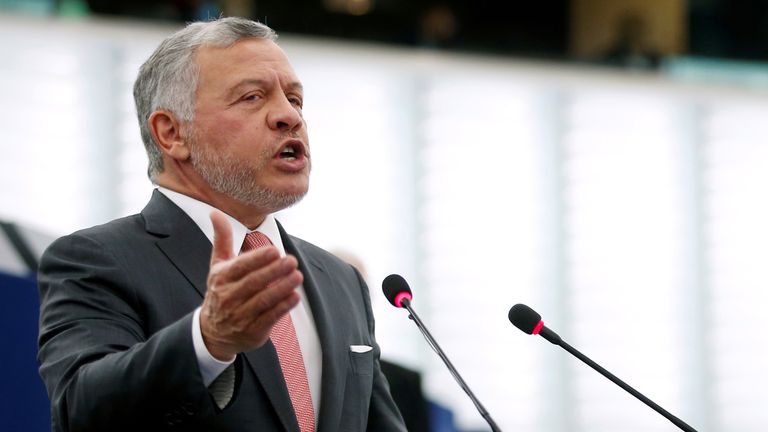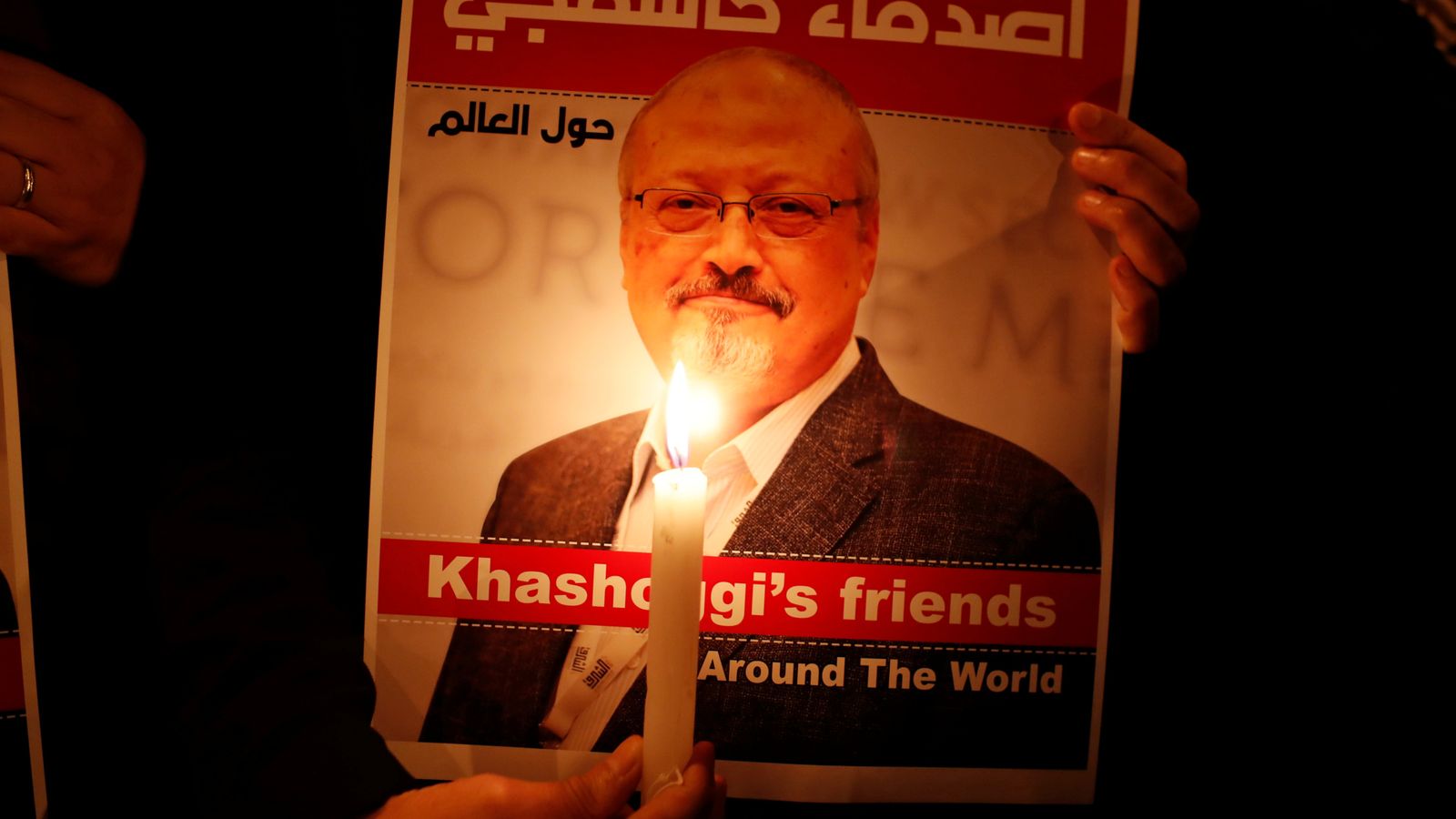Jordan’s top military official has denied reports that the king’s half-brother has been arrested as part of an alleged coup attempt against the monarch.
But Major General Yousef Huneiti did say that Prince Hamza bin Al-Hussein was asked to stop “movements and activities that are used to target” the security and stability of Jordan.
It came after The Washington Post reported that the prince had been detained, while a video purporting to him under house arrest was leaked to several broadcasters.
But in a statement posted by Jordan’s state news agency, it was said that Sharif Hassan bin Zaid, another member of the royal family, and Bassem Ibrahim Awadallah, a former confidant of King Abdullah II, had been arrested.
Hamza bin Al-Hussein was a former crown prince of Jordan, but was removed as heir to the throne by King Abdullah in 2004 in what was seen as a consolidation of power.
The tradition of the ruling Hashemite dynasty under the 1952 constitution gives the crown to the eldest son, but the monarch retains the option of naming a brother to be next in line.
The pair share a father in the late King Hussein, but have different mothers.
Mr Awadallah previously served as a finance minister and chief of the royal court, before he resigned in 2008.
He has also served as an adviser to Saudi Crown Prince Mohammad bin Salman.
Any political turbulence in Jordan will be of concern to its allies in the West, with the country having been seen as a beacon of stability in the Middle East.
The US state department has already offered the king, who has cultivated close relations with Washington and been a key ally in the war against Islamic State, its “full support”.
King Abdullah has ruled Jordan – which borders Israel, the Palestinian territories, Syria, Iraq, and Saudi Arabia – since the 1999 death of of his father, King Hussein, who ruled the country for close to half a century.
Jordan’s economy has been been battered by the pandemic, which has hit hard its population of 10 million people and more than 600,000 Syrian refugees.
Jordan is also home to more than two million Palestinian refugees, most of whom have Jordanian citizenship.
Since the start of the pandemic, the Jordanian intelligence agency has played a bigger part in public life. This change has been condemned by civil rights groups.
Riot police last month broke up a protests in the city of Amman, and other regions that were marking the 10th anniversary of the Arab Spring.












